Glossary | Telescopes | General | Series | RASA

RASA stands for Rowe Ackermann Schmidt Astrograph: Dave Rowe and Mark Ackermann are renowned optical instruments developers.
These telescopes have been specially developed for astrophotography. RASA astrographs have a very fast aperture ratio of f/2. You capture images twenty times faster than with an SC optic with f/10! This eliminates the need for tracking control (guiding). Even with an altazimuth mount, deep sky images are possible!
The optics have a four-lens corrector with rare earth glass that suppresses colour and image defects.
RASA telescope with Mount
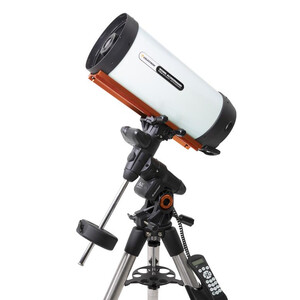
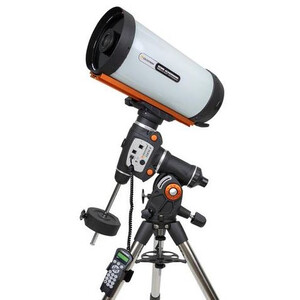
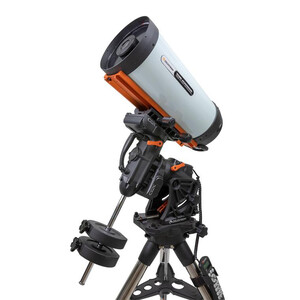
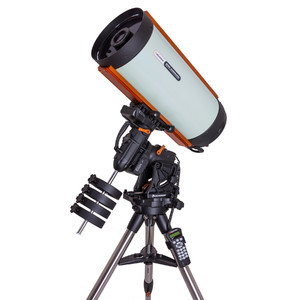
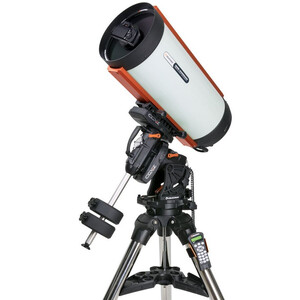
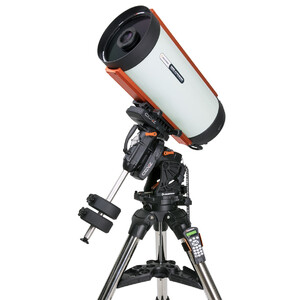
StarBright XLT

A very important factor in evaluating the performance of telescopes is transmission, that is the proportion of incident light that arrives at the image plane.
The main characteristics of the StarBright®-XLT coating are as follows:
- Highly reflective multi-layer mirror coating: the mirror coatings consist of precisely applied layers of aluminium, quartz, titanium dioxide and more quartz. The reflectivity is constant across the spectrum, and the three layers of coating provide excellent protection against the ageing of the mirror surface.
- Corrector plate: crystal-clear glass instead of soda lime glass is used for the corrector plate in all Celestron Schmidt-Cassegrain optics with StarBright-XLT coating. Uncoated, this glass delivers approximately 90.5% transmission. Together with the StarBright®-XLT coating, its transmission reaches 97.4%!
The entire optical system consisting the corrector plate, mirror and lenses achieve a transmission maximum of 89% at 520 nanometres (where the dark-adjusted human eye has its highest light sensitivity). The average transmission over the entire visual spectrum from 400 to 750 nanometres is 83.5%.
